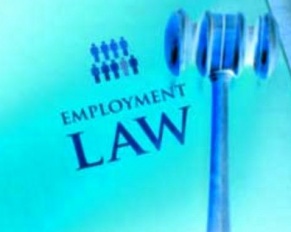For many people, it is a lifelong dream to tender their notice to the boss and work for themselves. What…


For many people, it is a lifelong dream to tender their notice to the boss and work for themselves. What…
 Title VII of the Civil Rights Act of 1964 prohibits sexual harassment which is a form of sexual discrimination. It is prohibited by law to harass an applicant or an employee based on their gender. Harassment can include a wide variety of actions such as unwelcome sexual advances, asking for a sexual favor, and many other verbal, non-verbal or physical actions that are of a sexual nature. However, even offensive remarks that are made about a person’s gender or sexuality can be considered sexual harassment. It is prohibited to make offensive remarks about women in general or men in general. Victims may be either male or female and victims do not have to be of the opposite sex. As a general rule, the law does not deal with incidents where there is simple teasing, silly comments or isolated incidents that do not escalate. However, when harassment becomes severe and creates a hostile work environment or an offensive work environment then the law is there to protect workers. A harasser can be a co-worker, an employer, supervisor, or even a person who is not employed by the company like a customer.
Title VII of the Civil Rights Act of 1964 prohibits sexual harassment which is a form of sexual discrimination. It is prohibited by law to harass an applicant or an employee based on their gender. Harassment can include a wide variety of actions such as unwelcome sexual advances, asking for a sexual favor, and many other verbal, non-verbal or physical actions that are of a sexual nature. However, even offensive remarks that are made about a person’s gender or sexuality can be considered sexual harassment. It is prohibited to make offensive remarks about women in general or men in general. Victims may be either male or female and victims do not have to be of the opposite sex. As a general rule, the law does not deal with incidents where there is simple teasing, silly comments or isolated incidents that do not escalate. However, when harassment becomes severe and creates a hostile work environment or an offensive work environment then the law is there to protect workers. A harasser can be a co-worker, an employer, supervisor, or even a person who is not employed by the company like a customer.

Federal and state governments have created many laws regarding employment practices to ensure safe and fair workplaces are available to all employees. Any New Jersey employment law attorney will tell you that these laws are put into place to make workplaces safe for all parties involved. Employers must keep up on the laws to ensure that they are providing a safe workplace for their employees that is free from discrimination and harassment. It is critical that employees have a good understanding of employment laws so that they can be sure their rights are not violated and be sure they are working in a safe and legal environment. Employment law covers many areas and maybe different between states. Here are some of the questions that employment layers are often asked.